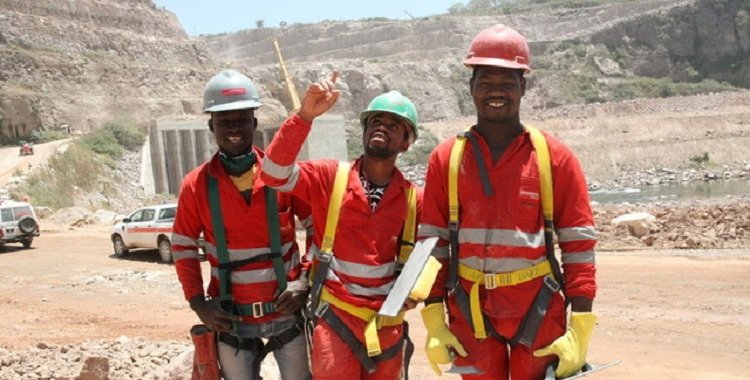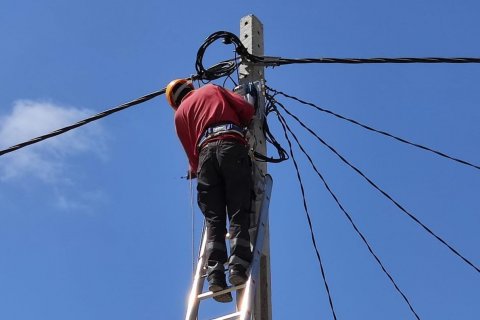Employer and worker are in a complex bundle of rights and obligations through an employment contract. This complex mandatory relationship is often conditioned by a cause attributable to the worker, the employer, and other times by reasons beyond the control of the parties.
In truth, Labor Law, in its genesis and evolution, has always had the tutelary function, always with the objective of protecting the worker, in the face of the vicissitudes inherent to the various economic contexts, especially to protect the worker from the ideal of Capitalism: maximizing profits, minimizing expenses, including wage expenses.
Covid19 is an infectious disease caused by the Coronavirus, which causes severe acute respiratory syndrome. It was identified by the first in the city of Wuhan, China, reported on December 31, 2019, and declared as a Pandemic on March 11, 2020 by the World Health Organization (WHO). Covid's Pandemic19 has shaken the main economies, markets and exchanges, including the oil market, namely Brent, which serves as a reference for Angolan exports, and which has a significant weight in the financing revenues of the Angolan State Budget .
It is in the context of objective causes, reduction in company revenues and inability to maintain wage expenses, beyond the control of the parties, that "Suspension of Employment Contracts" can be inserted.
Angolan labor law provides in Chapter IX, from Article 184 to 197, "Suspension of the employment contract". The law mentions in article 184 that "there is suspension of the legal-labor relationship whenever, temporarily, the worker is prevented from doing his work for facts that respect him but are not imputable to him, or the employer is prevented or excused from receiving the same job ". It may consist, according to articles 189 and 193, of: a) suspension of the employment contract due to fact relating to the worker. And, b) suspension of the employment contract for reasons relating to the employer.
For reasons beyond the control of the parties, caused by the COVID 19 Pandemic (Coronavirus), the employment contract may be suspended for reasons relating to the employer, who, pursuant to Article 193 (1) on the grounds of " that he is temporarily prevented or excused from receiving the work of all or part of the employees of the company or work center for: a) Verification of short-term, economic or technological reasons of temporary duration "; Or we can still frame the Covid Pandemic19 as "b) Calamities, accidents and other situations of greater force, (...) that require the temporary closure of the work center or the temporary reduction of the work". In the extreme, we can consider Presidential Decree 80/20 of 25 March - which declares the State of Emergency, as "d) Other situations foreseen and regulated in a special legal provision".
Suspension of the Employment Contract Versus the Law that Declares the State of Emergency and its Regulations
Presidential Decree 80/20 of 25 March - which declares the State of Emergency, and its Regulation, Presidential Decree 82/20 of 26 March - which defines Exceptional and Temporary Measures for the Prevention and Control of the Propagation of the Pandid of Covid19 , restrict fundamental rights and freedoms of citizens throughout the national territory. These restrictions automatically bring to a standstill a large part of the country's economic sectors, such as trade, services, industry, etc.
According to paragraph 1 of article 185 of the LGT, "during the period of suspension, unless expressly provided otherwise, the rights and duties of the parties cease (...)". The provision to the contrary, we can understand as a legal guidance or convention of the parties. However, in general, the obligations of the parties cease. Another effect that the article alludes to is the fact that the suspension maintains the count of working time for the purposes of seniority of the worker as well as the job. However, if the impeding fact is definitive, the employment contract expires and the legal-employment relationship is terminated.
Presidential Decree 82/20 of 26 March - which defines Exceptional and Temporary Measures for the Prevention and Control of the Propagation of the Pandemic of Covid19, with regard to legal-labor relations, alludes in article 14.l. 1 "the termination of legal and labor relations based on the absence of workers from the workplace is prohibited" (without prejudice to the application of disciplinary measures on other grounds).
The truth is that, if, on the one hand, workers miss work due to the State of Emergency, on the other hand, companies in the commercial, production, service and other sectors, at this stage, register inability to produce and / or collect revenue in the face of paralysis of the economy, despite the various measures of "support to companies and families" initiated by the Ministry of Economy and Planning, Ministry of Guarantees and BNA (liquidity line of 100 billion kwanzas so that commercial banks can proceed with the advance of the April payroll). And, the truth is that Angola is far from having "work at home" or "teleworking" in all sectors, according to the provision of article 15 of the same diploma. Furthermore, according to forecasts from the Ministry of Health, with the variables remaining constant, Angola will be able to know and control the "epidemiology curve, probably in May / June". If, on the one hand, Presidential Decree 82/20 of 26 March seeks to protect the legal-employment relationship, prohibiting the assignment of the employment contract due to the absence of the worker due to the Covid Pandemic19, on the other hand we find the business sector weakened by the paralysis and economic slowdown.
The Legal Regime for Suspension of the Employment Contract, for reasons related to the employer, presents itself as an instrument that may come to be used massively by the Angolan private business sector, without prejudice to the termination of the employment contract for a fixed period of time. This Legal Regime will allow a financial adjustment of companies in view of the difficulty of treasury, and, from a theoretical point of view, the suspension of the employment contract ensures the legal bond of the worker, endowing him with the right of preference in view of the cessation of the reasons for suspension. . Furthermore, it obliges companies to communicate the suspension of the employment contract to the General Labor Inspectorate, which can facilitate the identification of unemployed people and, in theory, facilitate the channeling of possible subsidies to families, provided for in the Covid Crisis Mitigation Measures19 designed by the Ministry of Economy and Planning. On the other hand, the application of the legal regime for the suspension of the employment contract will certainly contribute to the rise in the unemployment rate in Angola, causing an increase in the cost of living for families, given the lack of a social protection system that protects the unemployed.
Consulted Sources
Bernardo da Gama Lobo XAVIER, Labor Law Course, 3rd Edition Editora Verbo, Lisbo, 2005.
Presidential Decree 80/20 of 25 March - which declares the State of Emergency.
Presidential Decree 82/20 of 26 March - defines Exceptional and Temporary Measures for the Prevention and Control of the Spread of Covid Pandemic19.
Law 7/15 of 15 June - General Labor Law of Angola.
Luís Manuel Teles De Meneses LEITÃO, Labor Law of Angola, Edições Almedina, Coimbra, 2010.
Márcia NIGIOLELA, The Exercise of Disciplinary Power in the Angolan Legal System, December, 2014.
Norberto Moisés CAPEÇA, Dismissals in the Light of the New General Labor Law, 2015 ..
WHO. Availablehttps: //www.who.int/emergencies/diseases/novel-coronavirus-2019., Accessed 06/3/2020.








